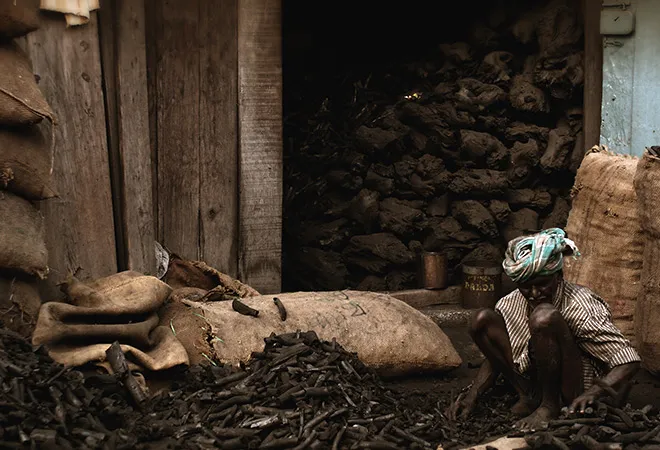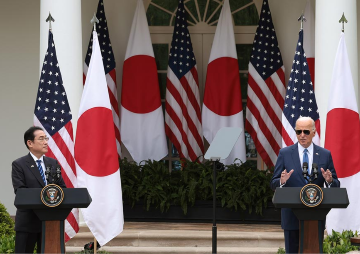
The following is a chapter from the book
70 Policies that Shaped India: 1947 to 2017, Independence to $2.5 Trillion.
Find the book here.
If insurance and banking could be nationalised, for how long could coal mining stay private? With the 30 April 1956 Industrial Policy Resolution <1> already in force, <2> and which had articulated the government’s policy of placing 17 industries including coal in Schedule A — a grouping that only the state could run, not private entrepreneurs — nationalisation was only a matter of time. That it took 15 years to begin the process is surprising. As part of the “Commanding Heights” of the Indian economy, the ownership and management of India’s primary energy source could only be in the government’s hands. Accusations of inadequate private investment and the prevalence of unscientific mining practices already behind it, the poor working conditions of labour, particularly safety conditions, turned an economic activity into a political argument that led to nationalisation. The process of nationalisation came through four acts of Parliament. First, the Coking Coal Mines (Emergency Provisions) Act <3> of 1971 took over the management of coking coal mines and coke oven plants pending nationalisation. The Coking Coal Mines (Nationalisation) Act <4> of 1972 followed, and on 1 May 1972, the government nationalised coking coal mines and coke oven plants (excluding Tata Iron & Steel Company Ltd and Indian Iron & Steel Company Ltd) and brought them under a new PSU, Bharat Coking Coal Ltd. The next year saw the enactment of Coal Mines (Taking Over of Management) Act <5> of 1973, under which the government took over the management of coking and non-coking coal mines in seven states. Finally, all these mines were nationalised, following the enactment of Coal Mines (Nationalisation) Act <6> on 1973, under Coal Mines Authority Ltd. In November 1975, the government formed Coal India Ltd. <7> as a holding company. <8> In this bout of takeover, the government nationalised 937 mines: 226 coking coal mines and 711 non-coking coal mines. Because nationalisation was done in a piecemeal manner, by the time it reached non-coking coal mines, many mines were reported to have been stripped of their plant and equipment. <9> In terms of outcomes, the first decade of coal nationalisation saw “political patronage of mafia activities” and bureaucratic corruption. <10> Essentially, the ‘ills’ of private ownership and profit passed on to mafias, unions and bureaucrats.
<1> Industrial Policy Resolution, Department of Industrial Policy and Promotion, Government of India, 30 April 1956, 1–5, accessed 8 January 2018.
<2> Chapter 14: Industrial Policy Resolution.
<3> The Coking Coal Mines (Emergency Provisions) Act, 1971, The Gazette of India, 23 December 1971, accessed 8 January 2018.
<4> The Coking Coal Mines (Nationalisation) Act, 1972, Ministry of Law and Justice, 17 August 1972.
<5> The Coal Mines (Taking Over of Management) Act, 1973, Gazette of India, 31 March 1973, accessed 8 January 2018.
<6> The Coal Mines (Nationalisation) Act, 1973, Ministry of Coal, 30 May 1973, accessed 8 January 2018.
<7> Committee on Public Undertakings (2014–15), Lok Sabha Secretariat, 28 April 2015, accessed 8 January 2018.
<8> The subsidiaries of Coal India Ltd are Eastern Coalfields Ltd, Bharat Coking Coal Ltd, Central Coalfields Ltd, South Eastern Coalfields Ltd, Western Coalfields Ltd, Northern Coalfields Ltd, Mahanadi Coalfields Ltd, and Central Mine Planning and Design Institute Ltd.
<9> Rajiv Kumar, “Nationalisation by Default: The Case of Coal in India,” Economic and Political Weekly 16, no. 18 (2 May 1981): 824–830, accessed 8 January 2018.
<10> A.B. Ghosh, “First Decade of Coal Nationalisation: Crucial Test of Performance,” Economic and Political Weekly 20, no. 34 (24 August 1985): 1443–1446, accessed 8 January 2018.
The views expressed above belong to the author(s). ORF research and analyses now available on Telegram! Click here to access our curated content — blogs, longforms and interviews.



 The following is a chapter from the book 70 Policies that Shaped India: 1947 to 2017, Independence to $2.5 Trillion.
Find the book
The following is a chapter from the book 70 Policies that Shaped India: 1947 to 2017, Independence to $2.5 Trillion.
Find the book  PREV
PREV



